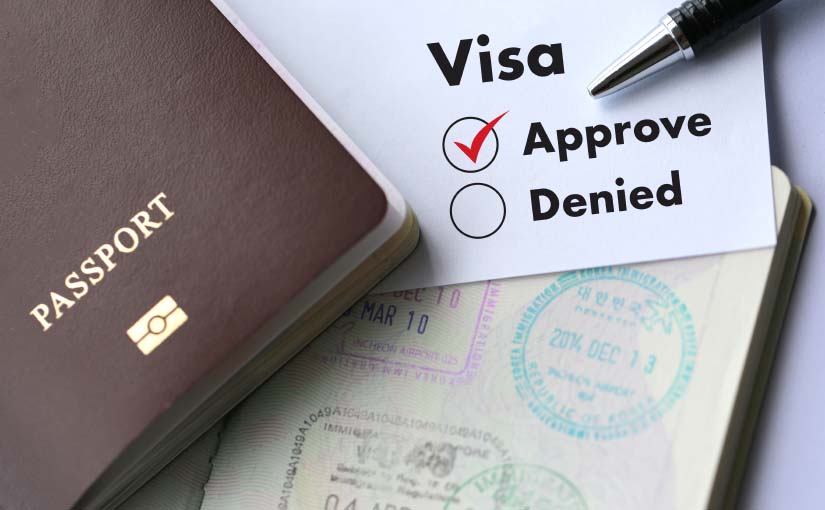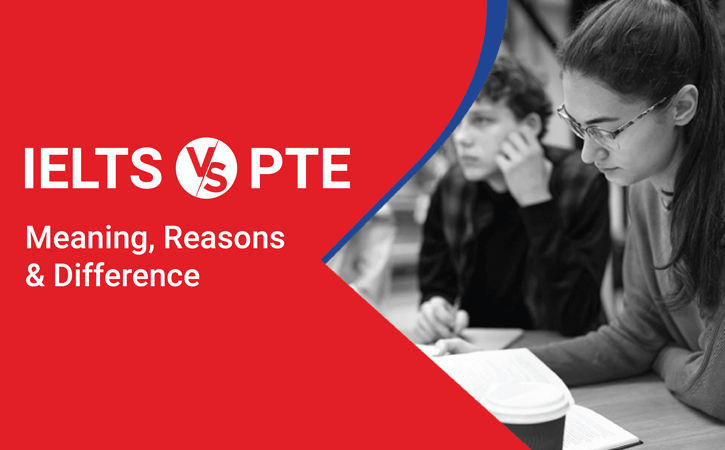

The IELTS examination has two variants – Academic and General Training. A student who wishes to study abroad in countries such as the UK, Ireland, Australia, New Zealand, or Canada among others is required to take the IELTS Academic exam. Someone who wishes to migrate from their home country to an English-speaking country to work is required to write the IELTS General Training.
The IELTS General Training is specifically designed for immigration purposes. On comparing IELTS Academic and IELTS General Training, it can be noted that the Reading and the Writing sections of the exam are set differently for the respective target audience.
The IELTS Academic exam has questions and tasks that are more relevant to interactions that a student has and are more academic in nature, whereas the IELTS General Training Writing and IELTS Reading section have questions that pertain to everyday work and life.
The IELTS Academic exam for immigration purposes can only be taken by medical professionals who wish to apply under the skilled migrant visa category. This applies to doctors, nurses, nursing assistants, pharmacists, pathologists, lab technicians, etc. For all other professionals, IELTS General Training has to be taken for immigration purposes.
A student who wishes to stay back in a foreign country for work purposes after the completion of his/her study may have to take the IELTS General Training in order to apply for a work visa. But there are several countries that allow international students to pursue work after graduation, as an extension of their initial student visa.
In such a case, the IELTS Academic that they have taken to secure admission in a foreign country is valid. The IELTS Academic becomes an indirect route to immigrate. This means that, if the IELTS Academic can help a student secure admission into an international school, they wouldn’t need the General Training for long-term immigration later.
But since the immigration policies of every country are different, it is good to double-check. If a student is nearing his/her graduation, they must talk to the university’s International Education Department to explore long-term work and immigration options.
Professionals looking to migrate to countries such as Australia or Canada, have to write IELTS General Training. This cannot be replaced with an IELTS Academic score. But the IELTS Academic opens the door for those who are not sure if they should study or work.
But since the IELTS Academic and the IELTS General Training exam are similar in many ways, it may not be a bad idea to write both exams, since the preparation time for both will be the same. Depending on the score one gets in both the exams and their career interests, one can decide if studying further or migrating for career advancement is a better option.
First and foremost, you should be aware that the IELTS General Training exam is developed exclusively for immigration purposes. In comparison to the Academic version, the Reading and Writing sections of the General Training edition contain activities that are more relevant to English everyday work and life.
IELTS Academic is less focused on the day-to-day employment and lives of immigrants in English-speaking countries. The Reading and Writing tasks, on the other hand, are more geared toward academic English.
As a result, IELTS Academic may not adequately prepare you for the immigrant experience. However, under certain situations, you may be able to use this test for immigration purposes.
The IELTS Academic exam is used to issue visas to a variety of healthcare professionals. The academic form of the immigration test is given to doctors and nurses. Nursing assistants, pharmacists, speech-language pathologists, and other professionals are among them. Medical lab technicians in several countries are required to take the IELTS Academic exam.
Assume you’ve recently graduated from university in a country such as Australia, Canada, the United States, Ireland, or anywhere. Let’s say you’ve decided to stay in the country and look for work.
To get into school, you took the IELTS Academic exam. Is it necessary to take the IELTS General Training exam in order to transition to long-term immigration? Don’t worry, you most likely don’t.
As an extension of their first student visa, all of the main English-speaking countries allow international students to work after graduation. The policies in place to accomplish this vary by country. However, working in-country after graduation usually does not necessitate any more English exams.
This is an indirect method of using IELTS Academic to get entry into the country. You won’t require General Training for long-term immigration if the Academic version of the test can get you into school. Consult your university’s international education office if you’re about to graduate or have recently graduated. They can assist you in determining your long-term employment and immigration possibilities.
In Australia, Canada, New Zealand, and the United Kingdom, IELTS is accepted as proof of English language proficiency for study, work, and migration.
Each country establishes its own IELTS standards, which we’ve outlined below. The requirements for your scores will also change depending on your visa requirements and where you plan to study or work.
You must demonstrate your English skills to the Department of Home Affairs in order to obtain an Australian visa.
With over three million exams completed in the past year, IELTS is one of the most popular high-stakes English language assessments in the world. It’s also the English test of choice for Australian educational institutions, professional bodies, and businesses. In fact, IELTS is accepted by all Australian universities and colleges, as well as all professional bodies with minimum language criteria for professional registration.
The IELTS score you’ll need is determined by your immigration requirements as well as the organization where you want to study or work.
IELTS tests are available in approximately 50 sites around Australia. Each state capital city, as well as several regional communities, has a test center.
It is also extremely recommended that native English speakers prepare for the IELTS test. When you’ve spent your entire life speaking English, it’s easy to become overconfident about the test. However, if you want to get the best possible result on your test, you need to become familiar with the structure.
You must demonstrate your English skills to Immigration, Refugees, and Citizenship Canada in order to obtain a Canadian visa (IRCC).
It’s also the English exam of choice for educational institutions, professional associations, and corporations across the country. In fact, IELTS is accepted by all Canadian institutions and colleges, as well as all professional groups with minimum language criteria for professional registration.
The International English Language Testing System (IELTS) is a high-stakes English exam for anyone wishing to live, work, or study in New Zealand. IELTS is accepted by Immigration New Zealand as proof of English proficiency for visa applications.
You may be sure that when you take IELTS, you’re taking a test that is recognized by institutions and organizations all around New Zealand. In fact, IELTS is accepted by all New Zealand universities, colleges, and professional groups that have set minimum language criteria.
The UK Visas and Immigration (UKVI) accepts IELTS Academic, IELTS General Training, and IELTS Life Skills as proof of English proficiency for anyone intending to live, work, or study in the UK.
The IELTS partners, which include The British Council, IDP: IELTS Australia, and Cambridge Assessment English, oversee IELTS assessments for UK Visas and Immigration.
If you are applying for a Tier 4 Student Visa to start a bachelor’s or postgraduate degree at Tier 4 Sponsored university, you must meet the institution’s English language requirements. IELTS scores are accepted by all British universities and institutions. Tier 4 Student Visa applicants with an IELTS score from one of the more than 1,600 IELTS test centers across the world can apply to the UK universities listed here. Please keep in mind that some colleges and universities may have additional prerequisites.
Manya – The Princeton Review offers end-to-end study abroad services that include admissions consulting services, test preparation, English language training, career evaluation, and international internship opportunities to study abroad. Established in 2002, Manya has an impeccable record of enabling more than three lakh students to research dreams abroad through a network of more than 40+ centers across India.
Manya has long formed global partnerships with several market leaders in the education sector to maximize the benefits of its large service portfolio. Their list of respected partners and affiliations includes the Princeton Review (TPR), Cogito Hub, British Council, and Tuding to name a few. Manya has also forged more than 600 partnerships with international universities across top study destinations abroad.
Book your Free Counselling Session now!As a medical professional, are you applying for a skilled migrant visa? If that’s the case, you’ll be asked to take the Academic version of the IELTS rather than the General Training version.
The IELTS Academic exam is used to issue visas to a variety of healthcare professionals. The academic form of the immigration test is given to doctors and nurses. Nursing assistants, pharmacists, speech-language pathologists, and other professionals are among them. Medical lab technicians in several countries are required to take the IELTS Academic exam.
Don’t worry, you most likely don’t. As an extension of their first student visa, all of the main English-speaking countries allow international students to work after graduation. The policies in place to accomplish this vary by country. However, working in-country after graduation usually does not necessitate any more English exams.
The validity of the IELTS test has not been extended to three years. As soon as you receive your IELTS results, your score is valid for two years. The validity period begins after your examination is completed.

IELTS Vs PTE: Meaning, Reasons & Difference

A Complete Guide to IELTS Vocabulary